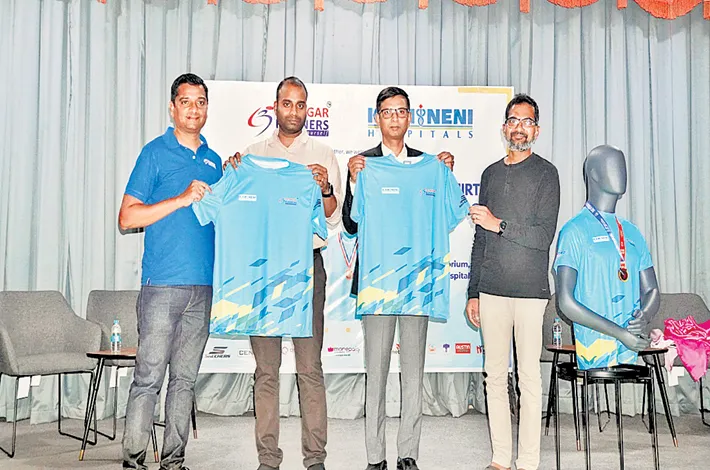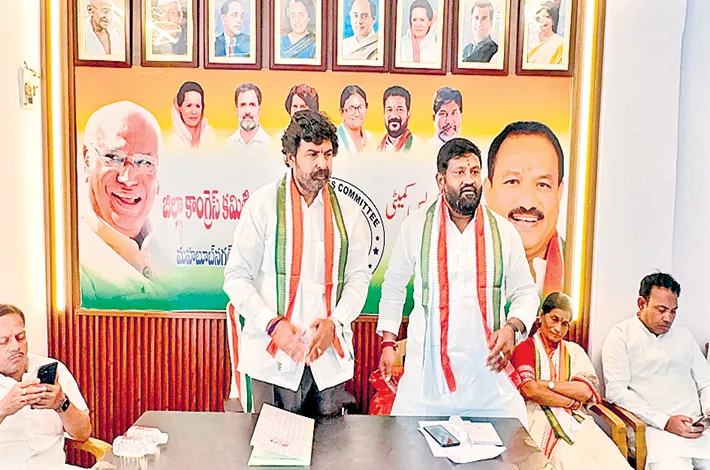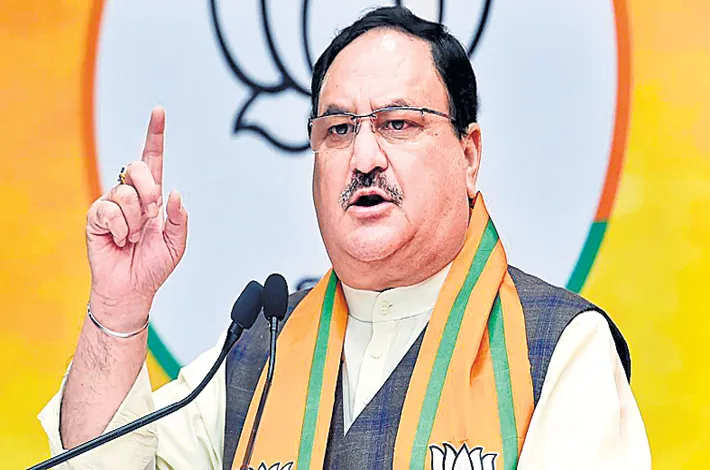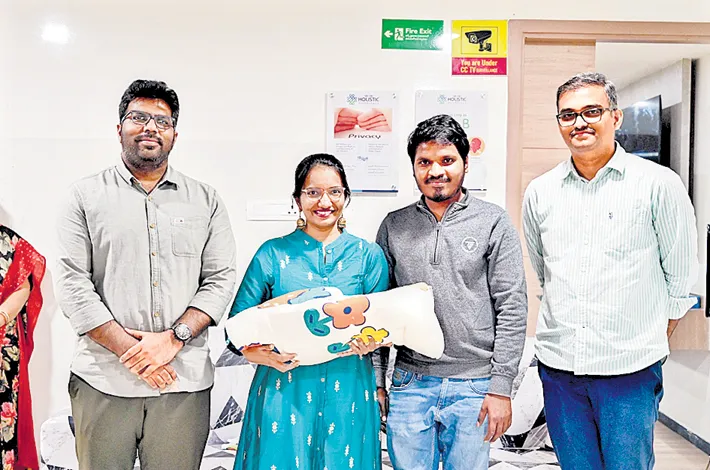Aadhaar valid, exclude fake voters
09-09-2025 12:00:00 AM
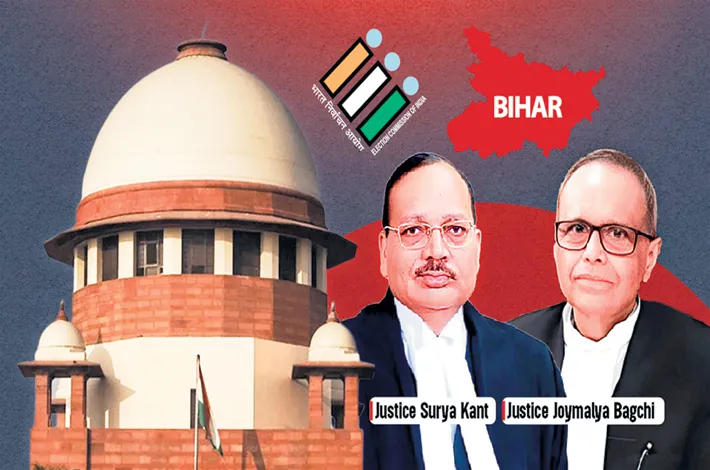
metro india news I new delhi
In a landmark ruling aimed at safeguarding the integrity of Bihar's electoral rolls ahead of the November assembly elections, the Supreme Court of India today emphasized that only genuine Indian citizens will be permitted to vote, explicitly excluding those relying on forged documents.
The bench, comprising Justices Surya Kant and Joymalya Bagchi, directed the Election Commission of India (ECI) to issue necessary guidelines ensuring robust verification during the ongoing Special Intensive Revision (SIR) of voter lists. The court also urged the ECI to formally consider Aadhaar cards as a valid identity document for voter authentication in the SIR process, while clarifying that it does not serve as proof of citizenship.
The decision comes amid heightened political tensions in Bihar, where the SIR exercise—launched by the ECI on June 24—has sparked accusations of potential mass disenfranchisement. Opposition parties, including the Rashtriya Janata Dal (RJD), Congress, and Trinamool Congress (TMC), have challenged the process in court, alleging it disproportionately affects marginalized communities and could exclude up to 65 lakh eligible voters. The ECI, however, maintains that the revision is essential to purge non-citizens, duplicates, and deceased individuals from the rolls, which have not undergone a full intensive update since 2003.
During today's hearing, the bench addressed a batch of petitions filed by RJD MP Manoj Jha, ADR, PUCL, activist Yogendra Yadav, TMC MP Mahua Moitra, and others. Senior advocate Kapil Sibal, representing the petitioners, argued that the ECI's requirement for 11 specific documents—such as birth certificates, passports, or matriculation certificates—unfairly burdens voters, many of whom lack such papers due to Bihar's high poverty and migration rates. "This is citizenship screening in disguise, shifting the burden onto citizens without due process," Sibal contended, citing a state survey showing only 14% possession of matriculation certificates and 2% passports.
Justice Kant, responding sharply, underscored the court's commitment to democratic purity: "Only genuine citizens will be allowed to vote; those claiming to be genuine on the basis of forged documents will be excluded." The bench stressed that while the ECI has the constitutional mandate under Article 324 to maintain electoral rolls, any forgery detected must lead to individual exclusions rather than blanket deletions. "En masse inclusion, not exclusion, is the way forward," Justice Kant remarked, echoing earlier observations that "any document on earth can be forged," but verification must be case-by-case.
A key focus was the role of Aadhaar, India's ubiquitous biometric ID held by over 87% of Bihar's population. The court directed the ECI to "consider issuing necessary directions for acceptance of Aadhaar in Bihar SIR," building on its July 10 prima facie view that Aadhaar, along with Elector's Photo Identity Cards (EPIC) and ration cards, should be included as the ECI's 11-document list is "not exhaustive." However, the bench firmly clarified: "Aadhaar is not proof of citizenship; it is solely for identity verification." This aligns with Section 9 of the Aadhaar Act, 2016, which explicitly states the card does not confer citizenship status and can be issued to non-citizens residing in India.
The ECI, represented by senior advocate Rakesh Dwivedi, defended its stance, noting Aadhaar's limitations in proving citizenship or domicile. In a July 21 affidavit, the poll body explained that while Aadhaar can supplement other documents, standalone acceptance risks including ineligible voters, including migrants from neighboring countries. The commission reported that 7.24 crore of Bihar's 7.89 crore electors (92%) had submitted enumeration forms, with 85,000 new voters added and only two objections from booth-level agents (BLAs). It assured the court that no deletions occur without notice and hearing, and claims/objections remain open beyond the September 1 deadline for the final roll on September 30.
Today's ruling extends prior directives. On August 22, the court had allowed online submissions for excluded voters using Aadhaar or the 11 documents, criticizing political parties' "inaction" despite 1.68 lakh BLAs. It impleaded 12 major parties, mandating them to assist voters. On August 14, the bench ordered publication of the 65 lakh deleted names for transparency, with reasons displayed at local offices. On September 1, it extended the claims period and deployed para-legal volunteers via the Bihar Legal Services Authority to aid submissions.
The SIR process requires voters enrolled post-2003 to provide birth/place-of-birth proof via self-declaration and documents, while 2003-roll voters need only a pre-filled form. Critics like ADR argue this violates the Representation of the People Act, 1950, and Registration of Electors Rules, 1960, by presuming ineligibility without evidence. The ECI counters that Article 326 mandates adult Indian citizenship for suffrage, and SIR ensures "purity" amid 70 lakh migrations and 1.1 crore deaths since 2003.
Political reactions were swift. RJD leader Tejashwi Yadav hailed the verdict as a "victory for democracy," accusing the ECI of bias. Congress spokesperson Jairam Ramesh called it a check on the poll body's "brutal assault." BJP's Bihar unit, however, praised the ECI's transparency, with leader Vijay Kumar Sinha stating, "This weeds out infiltrators, strengthening polls." Chief Election Commissioner Gyanesh Kumar emphasized that SIR is "inclusionary," with no eligible voter at risk.
The bench scheduled the next hearing for further arguments on the ECI's powers, procedure, and timing—issues flagged since July. Justices noted the exercise's proximity to elections raises "perceptions," but affirmed the ECI's residual authority under Section 21(3) of the 1950 Act. If illegality is proven, the court warned, even finalized rolls could be set aside.
This ruling balances electoral integrity with inclusivity, potentially averting disenfranchisement for millions. As Bihar gears up for polls, it reinforces that voting is a sacred right, reserved for verified citizens. With final rolls due soon, all eyes remain on implementation.





